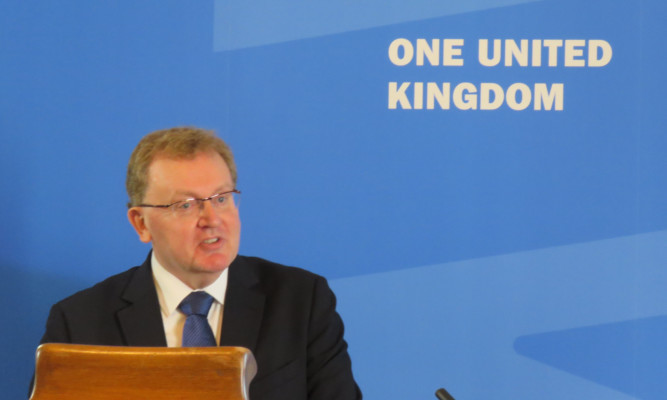Holyrood leaders will be punished at the ballot box if they fail to tell voters how they will use new powers coming to Scotland, says a UK cabinet minister.
Scottish Secretary David Mundell said it would be “inexplicable” to voters if parties relied on technicalities to shirk new tax and welfare powers coming their way through the Scotland Bill.
The raft of changes, which includes Holyrood setting the rates and bands of income tax, will be the “biggest transfer of power in the history of UK devolution” and will create “in effect a new Scottish Parliament”, Mr Mundell said.
“Emotive and important decisions will be taken for the first time in Scotland by a Parliament that raises most of its own revenue,” he told business, council and third sector leaders at the Dovecot Studios in Edinburgh.
“The parties standing for office have a great responsibility. They will need to tell us what their plans are for the new powers.”
He warned: “Any party who sought to get away with not telling people how much tax they intended to put upon them will suffer electoral repercussions.”
The bill will devolve power to Holyrood to set income tax rates and bands, top up welfare benefits or create new ones and to keep half of all VAT receipts from April 2017.
Scottish ministers would be responsible for raising more than half of its budget under the bill, which is making its way through the UK Parliament.
Asked if he thought Scottish ministers would embrace the changes, Mr Mundell said it would be “inexplicable” to the electorate if the powers were “snubbed” on the basis of a technicality or a failure to reach agreement on the Fiscal Framework, which sets out the financial terms of the power transfer.
Mr Mundell, the only Conservative MP in Scotland, said he was confident the SNP wanted to reach an agreement, but slated the party for what he described as its centralising agenda.
“There is a really strong belief that Scotland is becoming increasingly centralised,” he said. “There is no point devolving powers to Scotland if they are just going to be held in Edinburgh and not devolved down to people in local communities.”
For more on this story, see Tuesday’s Courier or try our digital edition.
